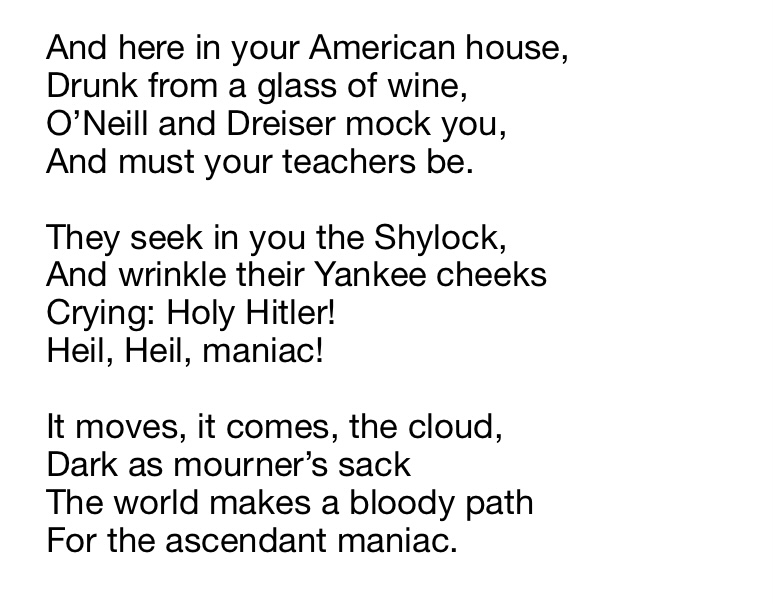
Eventually, Leivick is forced to deliver Daniel to be sent to war, recounted in a later poem appearing in ‘In Treblinka bin ikh nit geven’ (1945) which I have shared pieces of previously… #Yiddish 

In his post-Khurbn writing he often portrays himself (and also American Jewry) as the father and the son, the knife and the throat — the (potential) victim and the culpable-through-insufficient action.
This leads to an interesting passage in ‘With the Surviving Remnant’ which seems generic without any biographical information. Much less so knowing about his own son.
We have a false redeemer, too, touching on Leivick’s preoccupation with the Moshiach.
We have a false redeemer, too, touching on Leivick’s preoccupation with the Moshiach.

For me, this was the first time I encountered the name ‘Hitler’ in Yiddish. Not a thing easily forgotten.
• • •
Missing some Tweet in this thread? You can try to
force a refresh

















